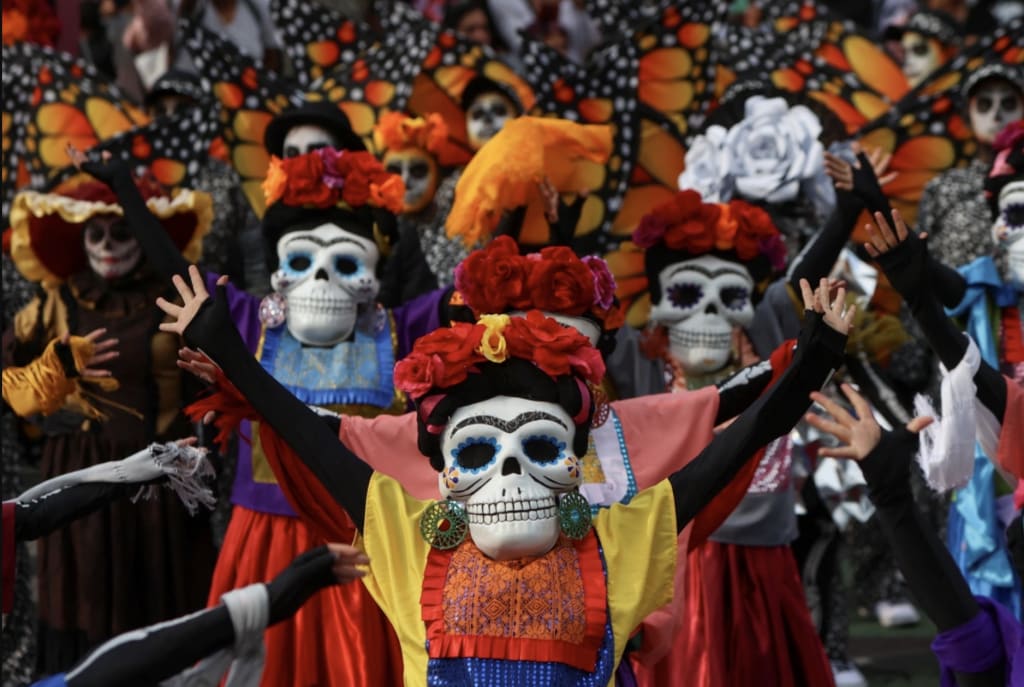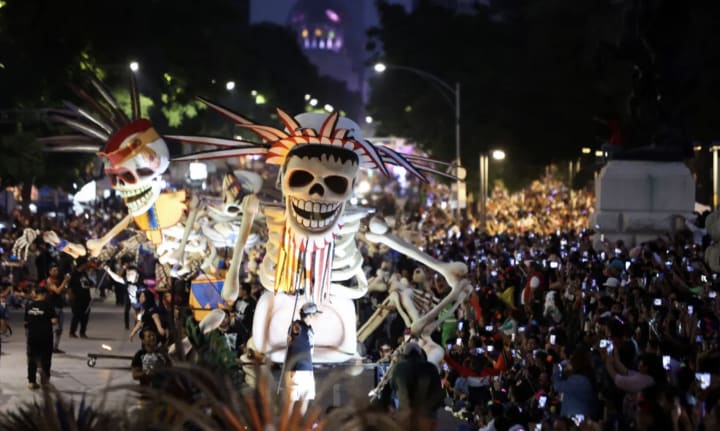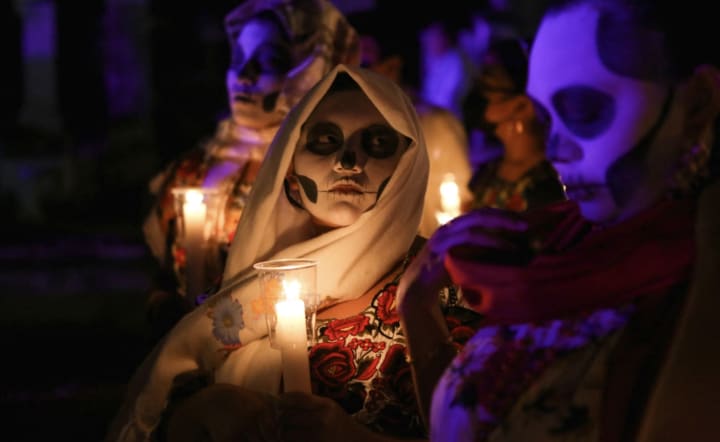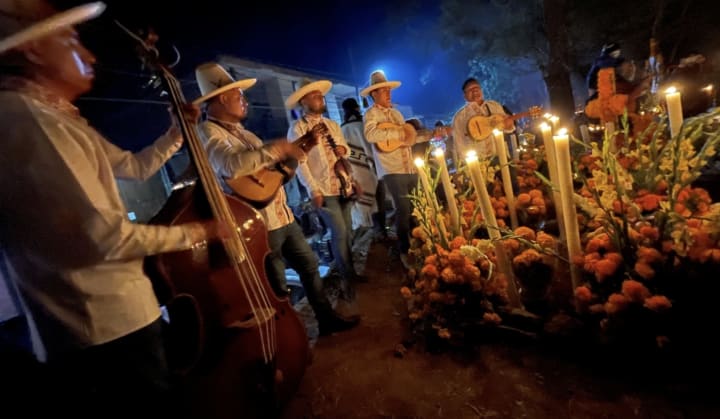Day of the Dead 💀
Honoring Life, Celebrating Heritage

Day of the Dead, or Día de los Muertos, is a holiday celebrated in Mexico and other parts of Latin America on November 1st and 2nd. It is a time to honor and remember loved ones who have passed away, and to celebrate their lives. Day of the Dead is a unique and vibrant celebration, filled with colorful decorations, lively music, and delicious food. In this blog post, we will explore the history and traditions of Day of the Dead in Mexico.
History of Day of the Dead
The origins of Day of the Dead can be traced back to the ancient indigenous cultures of Mexico. The Aztecs and other Mesoamerican civilizations believed that death was a natural part of life, and that the dead continued to exist in the afterlife. They believed that the spirits of the dead returned to the world of the living once a year to visit their loved ones.
When the Spanish arrived in Mexico in the 16th century, they brought with them the Catholic tradition of All Saints' Day and All Souls' Day. These holidays were celebrated on November 1st and 2nd, and involved visiting the graves of loved ones, lighting candles, and saying prayers for the souls of the dead.
Over time, the Catholic traditions merged with the indigenous beliefs and practices, creating the unique and colorful celebration of Day of the Dead that we know today.
Traditions of Day of the Dead

Day of the Dead is a time to remember and honor loved ones who have passed away. Families create altars, or ofrendas, in their homes or at the graves of their loved ones. These altars are decorated with colorful papel picado (paper cutouts), marigolds, candles, and food and drink offerings for the spirits of the dead.
The ofrendas often include photographs of the deceased, along with their favorite foods, drinks, and other items. Families also leave out water for the spirits, as they are believed to be thirsty after their journey from the afterlife.

One of the most iconic symbols of Day of the Dead is the calavera, or skull. These are often made from sugar or chocolate, and decorated with bright colors and intricate designs. The calavera is a reminder that death is a natural part of life, and that we should celebrate the lives of those who have passed away.
Another important tradition of Day of the Dead is the parade, or comparsa. These parades feature colorful costumes, music, and dancing, and are a celebration of life and death. The most famous comparsa takes place in Mexico City, and draws thousands of participants and spectators each year.
Food is also an important part of Day of the Dead. Families prepare special dishes, such as pan de muerto (bread of the dead), which is a sweet bread decorated with bone-shaped pieces on top. They also make tamales, mole, and other traditional Mexican dishes to share with friends and family.

Celebrations of Day of the Dead vary throughout Mexico and other parts of Latin America, but they all share a common theme of remembering and honoring loved ones who have passed away.
Day of the Dead Around the World
While Day of the Dead is most commonly associated with Mexico, it is also celebrated in other parts of Latin America, as well as in other parts of the world.
In Guatemala, Day of the Dead is celebrated on November 1st, and involves cleaning and decorating the graves of loved ones. Families also make offerings of food and drink, and light candles to guide the spirits of the dead.
In Brazil, Day of the Dead is celebrated on November 2nd, and is known as Finados. Families visit cemeteries and offer prayers for their loved ones who have passed away.
In the United States, Day of the Dead has become increasingly popular in recent years, particularly in areas with large Mexican-American communities. Many cities across the country hold Day of the Dead festivals and parades, featuring music, dancing, and traditional Mexican food.
In Europe, Day of the Dead is celebrated in Spain, where it is known as Día de los Difuntos. Families visit cemeteries and leave offerings of food and flowers for their loved ones who have passed away.
The cultural influence of Day of the Dead can also be seen in popular culture. The holiday has been featured in movies such as Coco and The Book of Life, as well as in fashion and art.
Day of the Dead and Cultural Identity
Day of the Dead is not only a celebration of life and death, but also an important part of Mexican cultural identity. The holiday reflects the unique blend of indigenous and Spanish traditions that make up Mexican culture, and is an opportunity for Mexicans to celebrate their heritage and traditions.
In recent years, there has been some controversy over the commercialization of Day of the Dead. Some people argue that the holiday has become too commercialized and has lost its cultural significance. Others argue that the commercialization of Day of the Dead has helped to spread awareness of the holiday and its traditions to a wider audience.
Regardless of the controversy, Day of the Dead remains an important part of Mexican cultural identity, and a celebration of the lives of those who have passed away.
In conclusion, Day of the Dead is a unique and vibrant celebration that reflects the rich cultural heritage of Mexico and other parts of Latin America. The holiday is a time to remember and honor loved ones who have passed away, and to celebrate their lives. Through its traditions of ofrendas, parades, food, and music, Day of the Dead reminds us that death is a natural part of life, and that we should cherish and celebrate the time we have with our loved ones.
About the Creator
Raj’s Vocal
Welcome to my channel :)






Comments
There are no comments for this story
Be the first to respond and start the conversation.